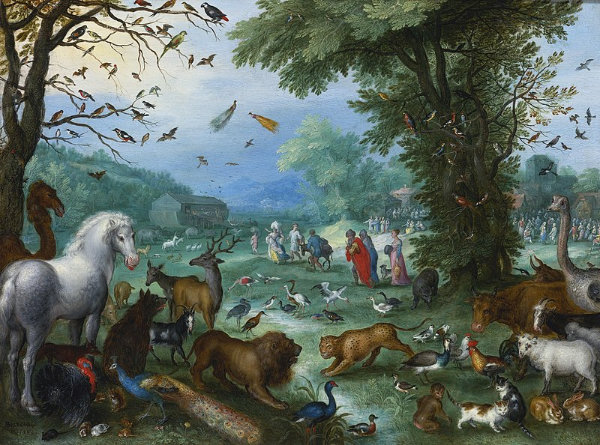If Noah were alive today, the Ark story would be vastly different

Robert M. Zink is Professor, School of Natural Resources and School of Biological Sciences, University of Nebraska-Lincoln; Curator, Nebraska State Museum; and Author of The Three-Minute Outdoorsman (2014) and The Three-Minute Outdoorsman Returns (2018). He teaches evolution and avian biology.
Over the last few years in my evolution class, I bring up some of the claims made about the biological accuracy of the Noah’s Ark narrative. The students were fascinated to learn that some think that Noah brought dinosaurs on the Ark; naturally, questions began to fly. The first is, inevitably, how could there be two velociraptors on the boat and any other animals left alive? Or, there was a dinosaur that was 6 stories high, how’d that work? When I pointed out that some have claimed that Noah might have brought juveniles, or fed them plants or meal worms, the eye rolling was dizzying.
One of the students made an amazing point that I had missed – if Noah had taken animals from deserts, prairies, tropical rain forests, polar ice caps, etc., when the flood waters receded, were their environments just like before and full of food? It’s hard to imagine flood waters disappearing and the tropical rain forest reappearing intact.
The notion of two-by-two immediately hits anyone who has had a genetics course because they’re aware of the devastating effects of inbreeding. Even though Noah didn’t bring only his wife, but also three sons and their wives, the level of inbreeding would have rivaled that of the Habsburgs and been a crushing genetic blow to the rekindling of humanity.
It doesn’t escape notice that the loving deity killed all remaining people including fetuses, infants and children, old people, and handicapped people. Pretty serious retribution.
The basic problem is the failure to admit that the Ark narrative was written before knowledge of genetics, biodiversity (e.g., kangaroos, penguins, microorganisms, parasites), evolution, and extinction had been uncovered by scientists. In other words, from today’s perspective, the Ark narrative is so geologically and biologically naïve as to be indefensible. One might even muse that were Noah alive today, the entire story would be completely overhauled to make it at least partially consistent with what we know today.
But, as I wrote in a longer, open access article, “[T]hose who wish to derive a spiritual message from the parable of Noah’s Ark can do so without requiring it to be scientifically factual, which is fortunate, because it is not.” However, to teach students that faith trumps science and the Ark narrative is biologically factual is a recipe for science denial, or as Neil de Grasse Tyson says, the dismantling of our informed democracy.
Reference. Zink, R.M. Noah’s Ark: a saga of science denial. Evo Edu Outreach 18, 5 (2025), https://doi.org/10.1186/s12052-025-00220-9>.
